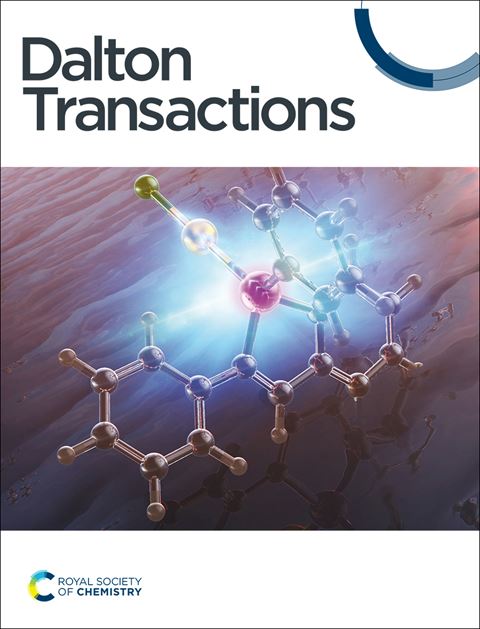基于大环配体的镧系自旋中心高轴向配位环境的高性能单分子磁体的构建。
IF 3.3
3区 化学
Q2 CHEMISTRY, INORGANIC & NUCLEAR
引用次数: 0
摘要
随着信息时代的到来,人们迫切需要更大容量、更高速度和小型化的设备来处理和存储信息。单分子磁体(SMMs)作为分子纳米磁体,在分子水平上具有经典磁弛豫和量子隧穿的独特能力,被认为是高存储密度磁性材料和量子比特计算的有希望的候选者。近年来,性能优异的中小微企业层出不穷。特别是基于大环配体的smm,其固有的结构优势为构建高轴对称构型提供了捷径,这是开发高性能smm的关键。本文综述了近年来具有D5h和D6h对称性的镧系大环smm的研究进展,根据大环结构的特点对其进行了分类,并进一步总结了大环smm的磁结构相关性。我们还提出了建立一个可修改的前驱模块来获得高度轴对称的大环结构。本文从特定大环的角度对高性能smm的制备和设计提供了理论指导,强调了大环配体在这一领域的发展潜力。本文章由计算机程序翻译,如有差异,请以英文原文为准。
Construction of high-performance single-molecule magnets with a high-axiality coordination environment surrounding a lanthanide spin center based on macrocyclic ligands.
With the advent of the information age, a pressing imperative for larger capacity, higher speeds and miniaturized devices to process and store information is emerging. Single-molecule magnets (SMMs), as molecular nanomagnets with a unique ability to exhibit both classical magnetic relaxation and quantum tunneling at the molecular level, are considered promising candidates for higher storage density magnetic materials and qubit computing. In recent years, SMMs with excellent performance have emerged in an endless stream. Especially, many breakthroughs have been achieved using SMMs based on macrocyclic ligands, where inherent structural advantages provide a shortcut for the construction of highly axisymmetric configurations, which is the key to developing high-performance SMMs. Herein, we review the recent research on lanthanide-based macrocyclic SMMs with D5h and D6h symmetry, classify them according to the characteristics of macrocyclic structures, and further summarize the magneto-structural correlations of macrocyclic SMMs. We also propose building a modifiable precursor module for obtaining highly axially symmetric macrocyclic structures. This review provides theoretical guidance for preparing and designing high-performance SMMs from the perspective of specific macrocycles, highlighting the potential of macrocyclic ligands in advancing the field.
求助全文
通过发布文献求助,成功后即可免费获取论文全文。
去求助
来源期刊

Dalton Transactions
化学-无机化学与核化学
CiteScore
6.60
自引率
7.50%
发文量
1832
审稿时长
1.5 months
期刊介绍:
Dalton Transactions is a journal for all areas of inorganic chemistry, which encompasses the organometallic, bioinorganic and materials chemistry of the elements, with applications including synthesis, catalysis, energy conversion/storage, electrical devices and medicine. Dalton Transactions welcomes high-quality, original submissions in all of these areas and more, where the advancement of knowledge in inorganic chemistry is significant.
 求助内容:
求助内容: 应助结果提醒方式:
应助结果提醒方式:


